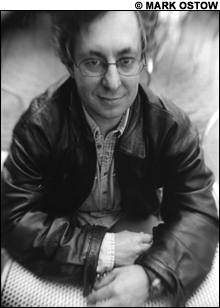
A WIN CAN DO WONDERS: After winning Judge Ernest Murphy’s libel case against the Herald, Cooper was deluged by hundreds of inquiries from potential clients. |
On January 20, 2005, in an emotional opening statement to a Suffolk County jury, Howard Cooper declared that a Boston Herald series, which began in February 2002, had been so unfairly damaging to Superior Court Judge Ernest Murphy that the judge “has been seen crying in front of lawyers, in front of court officers.”Twenty-nine days later — after deliberating for 25 hours and confounding the conventional wisdom that Murphy’s high-profile libel suit was a long shot at best — the jury awarded the judge nearly $2.1 million. And Howard Cooper’s life changed.
He found himself deluged by “hundreds” of inquiries from potential clients seeking help in media-related cases — 95 percent of which he quickly discarded. He became a sought-after speaker at panels and seminars. Massachusetts Lawyers Weekly named him one of its 10 “Lawyers of the Year” for 2005. Among the courtroom spectators in the Murphy case was an attorney for the Islamic Society of Boston (ISB), an organization impressed enough with Cooper to hire him for a conspiracy-and-libel lawsuit that could dwarf the Murphy case by the time it’s done generating headlines.

At age 46, and after two decades of practicing law, Cooper is something of a household name in media circles — although exactly what adjectives surround that name might vary. After beating the Herald in court and bringing the ISB suit against the tabloid and Channel 25, as well as their sources, he is an unpopular figure in some local newsrooms. And as a Jewish lawyer representing the ISB, Cooper is perched in the middle of an explosive case that threatens to pit Muslim against Jew, bringing the intractable Middle East conflict into court.
Cooper isn’t comfortable with a reputation as the media’s worst nightmare, asserting that “I’m not interested in being a plaintiff’s libel lawyer. I’m interested, to the extent possible, of [representing people] where a real wrong has been done and the legal system is available to correct it.”
And although there is a school of thought that says good lawyers should be dispassionate advocates for their clients, those who know him say Cooper’s intense faith in his cases is a big part of what motivates him.
“Howard tends to fall in love with the cause he’s pursuing,” says David Yas, publisher of Massachusetts Lawyers Weekly. “He’s a believer . . . in clients he takes on.”
Salma Kazmi is the assistant director of the ISB, which is contending in its sweeping lawsuit that the Herald, Channel 25, and some activists combined to undermine its new mosque, planned for Roxbury, by linking the organization to terrorists.
Kazmi says Cooper “is personally convinced that [the ISB officials are] innocent” and that “his ability to advocate is directly linked to the fact that in his mind, he’s completely convinced.”
Cooper has made some enemies and will make some more given his controversial caseload. But many of those familiar with his work tend to see him as the real deal — a passionate, sincere, and surprisingly idealistic advocate who is no fun to face across the aisle.
Murphy’s law
A Newton native, Cooper had a legal career embedded in his DNA. His father, who spent 42 years in the area as a “general practitioner,” was his role model. When he was about 12, he went to court to watch his father defend a man accused of stealing a ring from a jewelry store and recalled that “it was the most exciting thing I had ever seen.”
After getting his law degree from BU in 1984, Cooper went to work at Hale and Dorr before founding the Boston firm Todd & Weld with a small group of attorneys in 1991. (The downtown firm now has 35 lawyers.)
He estimates that about a quarter of his practice has been devoted to criminal-defense work, although he also spent time as the Boston Police Department’s legal representative prosecuting internal-affairs cases, and has represented students brought before college disciplinary boards for everything from plagiarism to sexual assault.
While Cooper had a brief stint as a journalist — he interned in the Albany UPI office while an undergrad at Union College — he does not have extensive media-related experience in the courtroom. He defended the Valley Advocate, in Springfield, in a libel case in the late 1980s. And in the wake of the Murphy case, he is now representing the plaintiffs in a defamation lawsuit against Northampton author Augusten Burroughs, whose 2002 bestseller Running With Scissors has been turned into movie slated to hit theaters this year.
Cooper and Judge Murphy knew each other; in fact, as lawyers, they once worked on a the same side of a case. But the two men hadn’t spoken for a few years when Cooper saw the Herald’s 2002 series criticizing Murphy for lenient sentencing practices. The Herald also reported that he once said of a young rape victim: “She can’t go through life as a victim. She’s 14. She got raped. Tell her to get over it.”